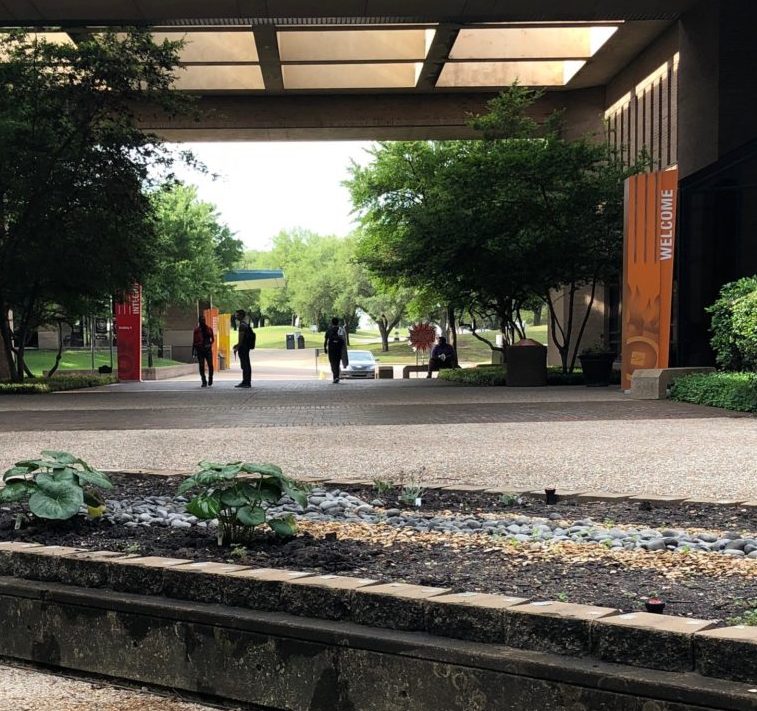This material was written by a Dallas College licensed mental health counselor, Kaitlin Short, MS, LPC, NCC. All views expressed in this piece are their own and do not necessarily reflect the views of Dallas College.
Dallas College Counseling and Psychological Services (CAPS) wants all Dallas College students to know that October is Domestic Violence/Intimate Partner Violence Awareness Month.
We invite you to join us for multiple events throughout the month of October that aim to educate and empower students with information and resources related to domestic violence and support survivors of domestic violence. Take a look at our workshops and events and join us!
We may hear the term “domestic violence” or “intimate partner violence” and think of physical acts, however, this can take many forms – emotional abuse, psychological abuse, financial abuse, sexual abuse, and physical abuse. Did you know that, according to the CDC, 1 in 4 women and nearly 1 in 10 men in the United States will experience domestic violence of some form in their lifetime? Rates of domestic violence may be experienced at an equal or higher rate in the LGBTQIA+ community. Current research suggests racial disparities as well, with women of color reporting experiencing domestic violence in their lifetime at a rate 30 to 50% higher than white, Hispanic, and Asian women.
Across the COVID-19 pandemic, there was also an international increase in reported domestic violence instances when compared to 2019. For example, The Hotline (the National Domestic Violence Hotline) reported a 9% increase in calls across two months early in the pandemic, with over six thousand calls made referencing COVID-19 as a concern related to the domestic violence they were experiencing.
Experiencing domestic violence is linked to chronic mental health concerns such as depression, anxiety, and trauma concerns, as well as chronic physical health conditions. Did you know that there may be financial costs for domestic violence survivors as well, along with associated health concerns? The CDC suggests that female survivors of domestic violence may incur on average a lifetime cost of $103,767 due to medical services or treatment, lost wages or productivity, and legal costs. Men may incur a cost of $23,414 across a lifetime.
Let’s talk about respect. How do we know what makes for a healthy relationship? How do we build healthy relationships or recognize that we’re in one? These are great questions! While we know that no two relationships look the same, what we can acknowledge is the shared importance of respect. In healthy relationships, partners are considered equal with neither exerting power or control over the other. Abusive relationships, alternatively, are based in dynamics of power and control over where the perpetrator establishes and maintains a dynamic of power/control over their partner. Respect in relationships indicates that, despite differences or disagreements, we experience freedom, dignity, care, trust, and faith in and with our partner(s).
LoveisRespect.org provides a great guide to show/acknowledge respect in a healthy relationship. Respect can look like communicating openly with honesty, listening, validating our partner’s needs and feelings, welcoming compromise, speaking with kindness, allowing alone time and space, acknowledging and encouraging each person’s interests, career, and personal life, creating and maintaining boundaries, and striving to empower and build each person in the relationship up, rather than a need to control or change them.
To learn more about the markers of a respectful, healthy relationship, how to support domestic violence survivors, improve communication in relationships, among others, we encourage you to join us for our wide array of events throughout the month of October and beyond. Empower yourself with resources and information, too, to help yourself or help a friend. Remember that free, confidential mental health services and programming are available to students through Counseling and Psychological Services. Additional information and resources are available on The Hotline or NCADV.
If you or someone you know are experiencing domestic violence, call 1-800-799-SAFE (7233) to reach The National Domestic Violence Hotline, or text START to 88788.
Find out more about Domestic Violence Awareness Month events at Dallas College.
